PHAST Travels to US Virgin Islands to Assess Recovery After 2017 Hurricanes
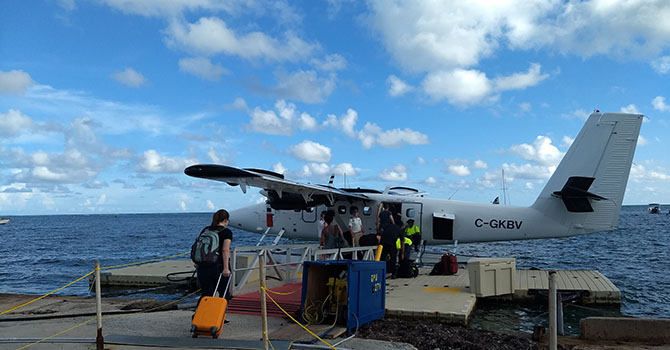
During the week of October 21, 2019, members of the University of Michigan School of Public Health’s Public Health Action Support Team (PHAST) traveled to the US Virgin Islands to conduct a post-hurricane analysis of communities affected by Hurricanes Irma and Maria in September 2017.
The group deploys graduate students to health organizations and non-profit organizations throughout Michigan, nationally, and globally to assist with various public health projects. This donor-supported work—done in collaboration with the Center for Disease Control and Prevention (CDC) and the US Virgin Islands Health Department—will help provide data on the current condition of individuals recovering from the events and assess what resources are still needed in the recovery process.
“This is our return trip to the US Virgin Islands,” said Dana Thomas, director of Public Health Practice at Michigan Public Health. “Shortly after the hurricanes hit in 2017, we were approached by the CDC to deploy teams to Saint Croix, Saint John, and Saint Thomas to conduct a Community Assessment for Public Health Emergency Response (CASPER), where the data that was collected was used by the CDC to develop the recovery plan for the US Virgin Islands.”
Collecting Data to Better Understand the Perspectives of Those Impacted by the Hurricanes
During the 7-day trip, PHAST members were tasked with conducting the over 180 interviews and entering the data. Much of the work in 2017 was conducted on paper, which took more time for data entry on the last few days of the trip. This time around—with the help of tablets—the team was able to input information, synthesize the data and analyze the findings at a quicker rate because the data entry was able to happen in real time.
Although the hurricanes happened over two years ago, many communities and individuals on each island are still dealing with the ramifications of rebuilding and recovery. Anna Bowie, a PHAST member and graduate student in the Health Behavior and Health Education department, said meeting people firsthand presented a great deal of personal reflection and processing.
“One individual my team interviewed stated the worst impact of the hurricane was a plastic table being blown off their porch,” she said. “However, an earlier conversation that day, only streets away, painted a different perspective. This survey participant candidly shared their exhaustion and overwhelming responsibility of reconstructing their family home that they had recently bought prior to the storm. They were living in the front part of their home due to the debris and the destruction of most of the home. A key aspect of survey research that was important for me to learn was the importance of both of these perspectives in encompassing the needs of the area as a whole.”
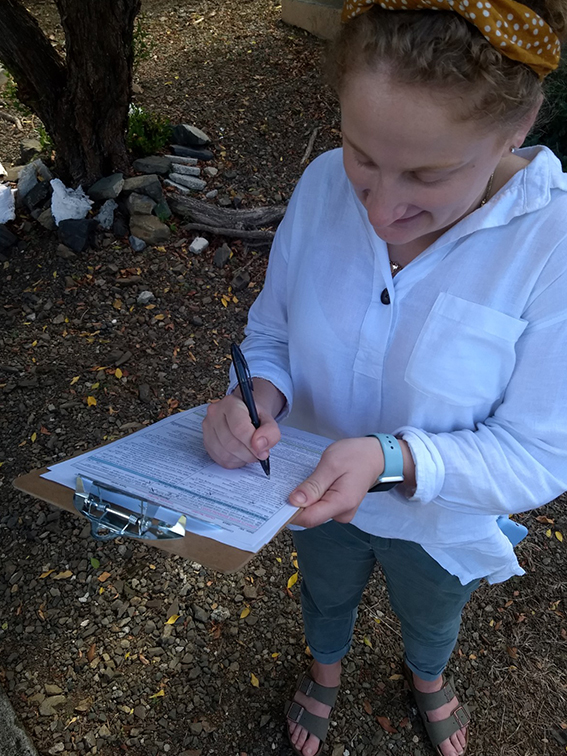
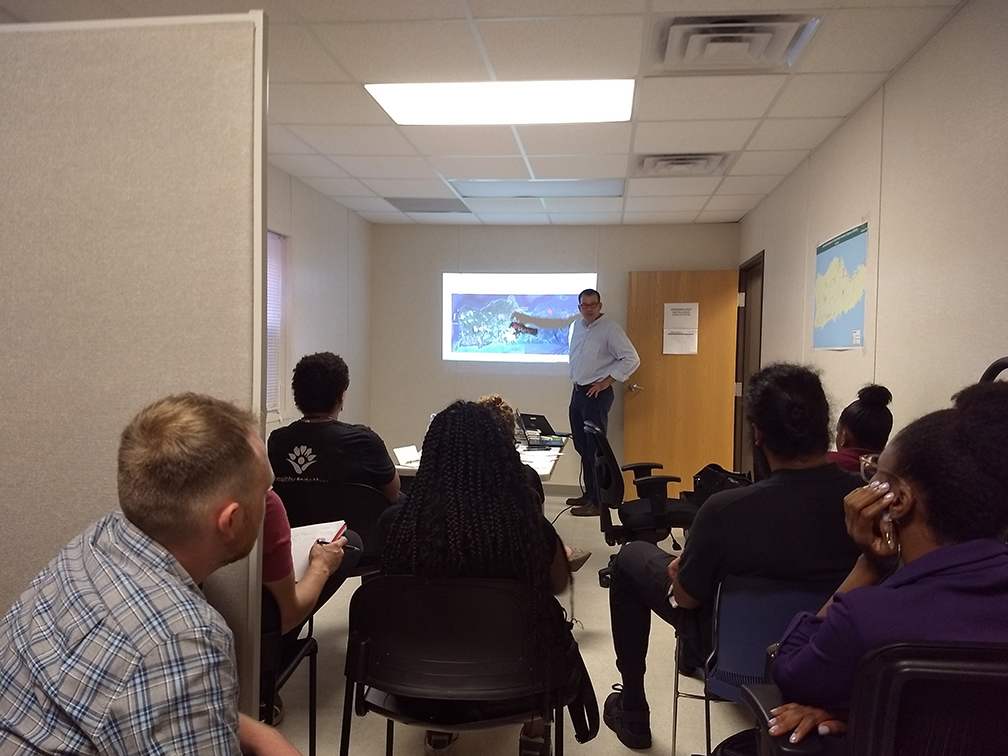
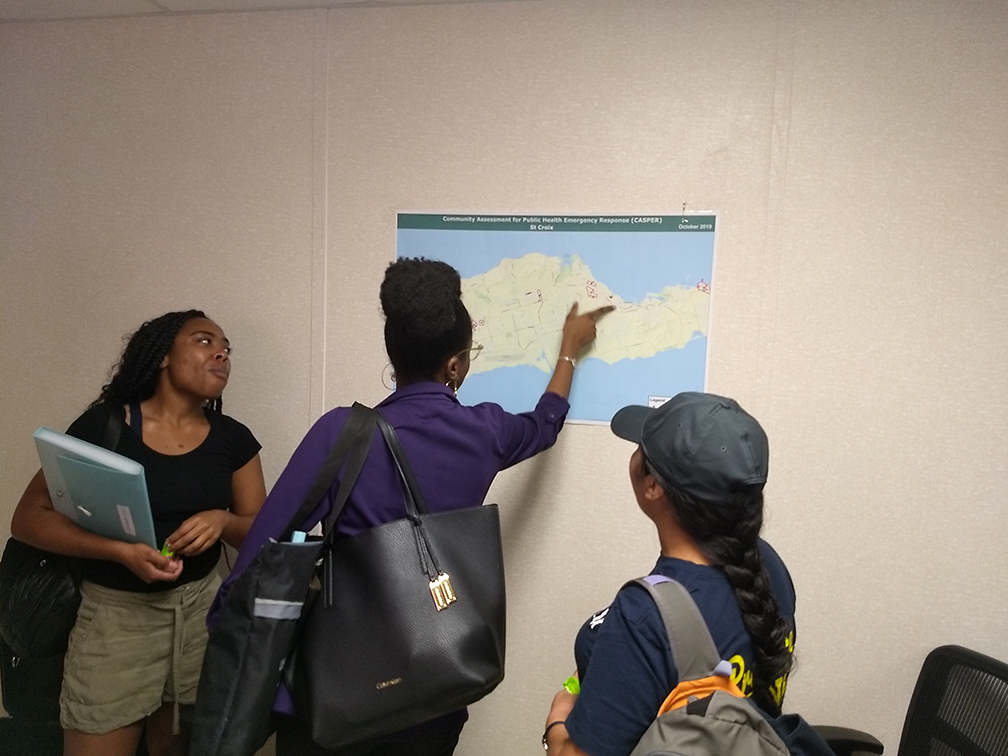
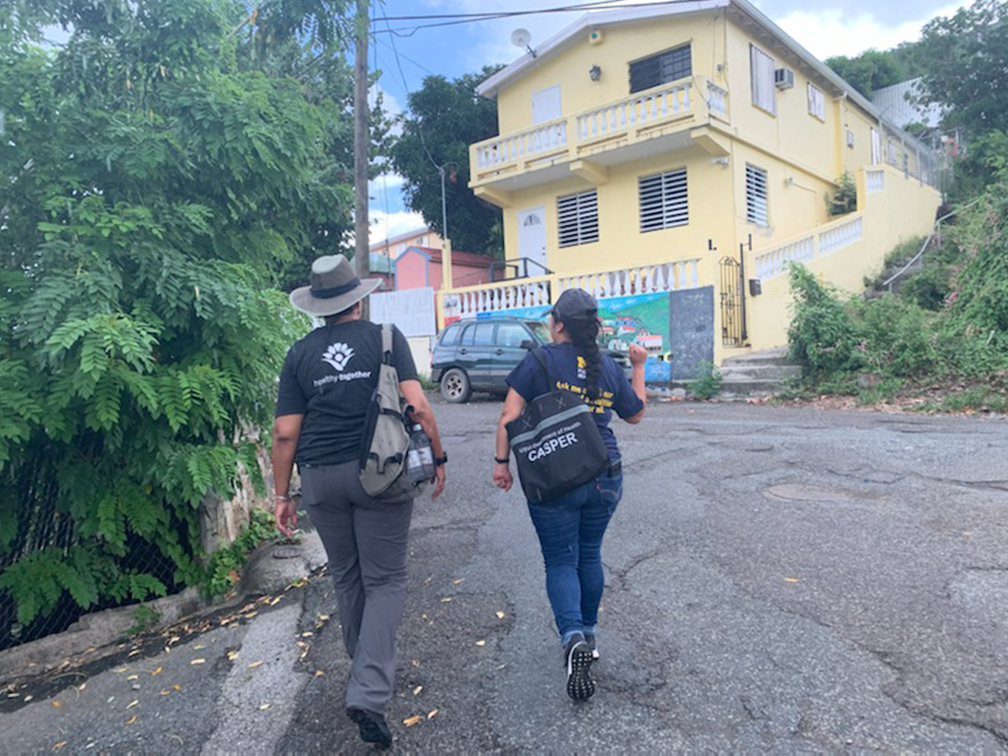
From Theory to Practice
Caleb Ward, a graduate student in the Epidemiology department who helped conduct the interviews, said the experience shed light on what his future career could look like.
“While in the Virgin Islands, I learned more about sampling methodology for surveys in the wake of disasters and how to better conduct an interview,” he said. “The trips I’ve taken with PHAST have really solidified my interests and shown me what a future career can look like in my desired field.”
For Mislael Valentín-Cortés, a Health Behavior and Health Education graduate student, understanding the complexities of disasters in a real-life setting was a key takeaway.
“The hurricanes impacted communities in various ways,” he said. “From concerns like access to basic needs such as food and water, suffering from adverse mental health outcomes following the storm, changes in social networks and social support systems, difficulties accessing healthcare, and more. Working closely with a community partner was vital for us as we navigated this new environment.”
Looking forward, the data collected during this trip will be used to better understand exactly where different populations across the US Virgin Islands are in their recovery process. In addition, another group of PHAST members is expected to deploy back to the US Virgin Islands in March 2020 to continue post-hurricane research and data collection.
“While our job is to help determine where the community is in their recovery process, we also get to see the community’s resilience and how they come together during a major event like a hurricane,” Thomas says.
- Learn more about PHAST
- View the latest research from faculty, students and alumni
- Support future PHAST trips with a gift to the SPH Fund
